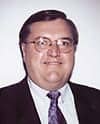Achieving Excellence in Atlanta
The Sleep Disorders Center of Georgia gains recognition and respect through a nationally recognized compliance program, in-house research, and visibility in the local community.

As an early pioneer in sleep medicine, James Wellman, MD, ABSM, performed one of the first clinical studies of obstructive sleep apnea (OSA) in Georgia in 1978. He studied a patient in an Atlanta hospital using a simple lowlight video camera and microphone setup to record the patient’s snoring and irregular breathing, which allowed observation by the physician. Within minutes, a crowd gathered outside the patient’s room to witness what was then uncharted territory. Back then, very few physicians were knowledgeable about sleep apnea and its treatment and continuous positive airway pressure (CPAP) treatment had not yet been invented.
Twenty-five years later, Wellman and his longtime associate, Alan Lankford, PhD, ABSM, are still treating patients with sleep disorders at the Sleep Disorders Center of Georgia, a virtual 26-bed freestanding facility they established in 1990. With five locations in the Atlanta metropolitan area and 59 employees, it is one of the region’s largest sleep centers and was the first freestanding laboratory in Georgia to be accredited by the American Academy of Sleep Medicine. The Sleep Disorders Center has grown steadily over the years not only because of the founders’ expertise in sleep medicine, but also their ability to recognize the need for offering value-added services to improve patient care.
Wellman and Lankford credit an early strategy that served as a guide for including a broad range of services within the center. “Our focus was on three basic components: patient care, research, and education,” says Wellman, the center’s medical director. “Over the years, we have built on each of these areas, which has resulted in a comprehensive program that we feel makes us unique compared to other sleep labs.”
Improving Compliance
A nationally recognized compliance program for its CPAP clinic is one of the services that sets the Sleep Disorders Center apart from other sleep laboratories. When Wellman and Lankford established the program in the early 1990s, they realized that an ongoing follow-up effort would be necessary to monitor and enhance compliance for patients using CPAP. Low compliance rates are typically reported when education and follow-up have not been adequately addressed.

To improve compliance, patients scheduled to undergo CPAP therapy at the Sleep Disorders Center complete the following steps prior to the start of treatment: a history and physical examination by a board-certified sleep disorders specialist; a full overnight polysomnogram; a nasal CPAP trial in the sleep laboratory; a video tape presentation, supplemented by written material, explaining nasal CPAP; a hands-on demonstration by a polysomnographic technologist; an explanation of OSA and CPAP by a board-certified sleep technologist; and a 1-hour educational session with the technologist and CPAP specialist who address mask sizing, equipment maintenance, and patient expectations.
After the patient has been set up on CPAP therapy to be used nightly at home, additional follow-up is provided, including a physician visit 2 weeks after the initiation of therapy, unlimited telephone contact with the technologist or CPAP specialist, and regular CPAP clinic visits at 3 months and then every 6 months thereafter. These appointments are scheduled in advance using a system of postcards and telephone calls, all of which is tracked by computer boomerang Web software. At each CPAP clinic visit, the patient receives an evaluation by the CPAP specialist on several key health status factors. This data is recorded on a standardized reporting form. At each CPAP clinic visit, the patient’s equipment is thoroughly checked.
According to Lankford, the administrative director, the compliance program has been especially well received by private payors, who view the CPAP service as a one-stop shop for patients with sleep apnea providing continuity of care. “Our patients have regular ongoing contact with the physicians, receive diagnostic tests and CPAP titration, undergo regular follow-up, and receive new supplies when necessary,” Lankford notes.
The Sleep Disorders Center of Georgia offers a weight management class and nutrition counseling with a registered dietitian for patients whose extra weight contributes to sleep disorders. “Many of our payors are impressed that we offer these services as a possible alternative to CPAP,” says Sherry Weaver, director of managed care and marketing. The weight management classes are available as both group and one-on-one sessions and email counseling is also offered by the registered dietitian.
An in-house research study has also shown that this attention to detail in the compliance program is clearly paying off. In a study that asked more than 100 patients of the Sleep Disorders Center to assess perceived outcomes, 100% reported improvements in snoring and breathing cessation during sleep, 83% reported improved general alertness, and a range of 55% to 86% reported improvements in various other areas, including concentration, memory, and energy. Lankford adds that the center’s study also showed that long-term compliance for sleep apnea patients at the Sleep Disorders Center approached 90%, compared to published national averages of 50% to 60%.
Being able to meet the needs of private payors (primarily HMOs and PPOs) is one of the major reasons the Sleep Disorders Center has been so successful. With 88% of its patients in managed care plans, the center has contracts with all of the major insurers as well as providing coverage to independent and self insured companies. Managed care penetration in Atlanta is about 90%, forcing most health care providers to offer high-quality, yet cost-effective services.

The center also has a limited home study program with Kaiser Permanente patients who have sleep apnea. “Some of these patients prefer being tested at home, and we are able to obtain an accurate diagnosis and treatment plan in this environment,” Wellman says. After the physicians determine that a home study is appropriate for a patient, the patient can choose this method or a laboratory study. About 50% of these patients choose the home study. “This frees up beds in our labs for patients who require full overnight polysomnography monitored by a sleep technician.”
Research
Unlike many sleep centers, the Sleep Disorders Center has also made research a central element of its program. A full-time clinical research director, Michael Bohannon, works with several research coordinators to oversee a variety of projects. Six beds are dedicated exclusively to research. Lankford and Wellman have coauthored articles recently published in Sleep, Chest, and the Southern Medical Journal. In addition to research performed in the clinic setting, the Sleep Disorders Center of Georgia’s Research Division is an independent clinical trials organization devoted exclusively to investigational drug research in sleep disorders. Lankford and Bohannon direct these clinical trials with established pharmaceutical companies. Over the last several years, more than 35 separate clinical trials have been conducted. The center is currently working on trials investigating compounds for insomnia, narcolepsy, apnea and shift work, and research related to blood pressure.
Fellowship Program
Years ago, the center established a fellowship program with Emory University Medical School to train physicians in sleep medicine. Staff physician Abul M. Matin, MD, PhD, board-certified in internal medicine, pulmonary medicine, and sleep medicine, is one of the individuals who studied in that program.
Another reason for the center’s success has been its visibility in the local community through employer health fairs and other educational events. This year, the center has participated in 16 health fairs, reaching thousands of employees. “Most of these events are held during the benefit enrollment periods,” Weaver says. “Our managed care contract link becomes very important when we begin the process of working with employers.” The center also participates in the National Sleep Awareness Week sponsored by the National Sleep Foundation (NSF). Packets of brochures and other handouts are mailed to contracted payors, referring physicians, and selected employers’ human resources departments during that week. As one of NSF’s Sleep Awareness Partners, the center promotes sleep medicine throughout the year by using literature, press releases, and local media interviews.
Since the 13-county metropolitan Atlanta area is expected to add about 2.3 million people and nearly 1.7 million jobs between 2000 and 2030, the Sleep Disorders Center of Georgia continues to seek ways to expand its access to more people. Plans include expanding into the western section of Atlanta along the I-20 corridor.
The center’s growth rate is extremely impressive given that the company has been in business for only 13 years. Lankford is quick to point out that its staff has been the key to the center’s success. “We have been fortunate that our entire staff—everyone from our technicians and sleep specialists to our administrative staff—has a passion for sleep medicine,” he says. “Their dedication is directly attributable to the success of our program.”
Carol Daus is a contributing writer for Sleep Review.



